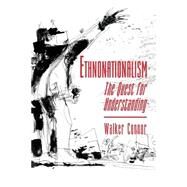Ethnonationalism
, by Connor, Walker- ISBN: 9780691025636 | 0691025630
- Cover: Paperback
- Copyright: 11/15/1993
Walker Connor, perhaps the leading student of the origins and dynamics of ethnonationalism, has consistently stressed the importance of its political implications. In these essays, which have appeared over the course of the last three decades, he argues that Western scholars and policymakers have almost invariably underrated the influence of ethnonationalism and misinterpreted its passionate and nonrational qualities. Several of the essays have become classics: together they represent a rigorous and stimulating attempt to establish a secure methodological foundation for the study of a complicated phenomenon increasingly, if belatedly, recognized as the major cause of global political instability. The book opens by reviewing a wide range of scholarship on ethnonationalism. Connor examines nineteenth-and early twentieth-century debate among British scholars on the viability and desirability of the multinational state, the American "nation-building" school of thought that dominated the literature on political development in the post-World War II era, and the recent explosion of literature on ethnonationalism. In the second part of the book, he shows how progress in the study of ethnonationalism has been hampered by terminological confusion, an inclination to perceive homogeneity even where heterogeneity thrives, an unwarranted tendency to seek explanation for ethnic conflict in economic differentials, and lack of historical perspective. The book closes with a consideration of the inherent limitations of rational inquiry into the realm of group-identity.







